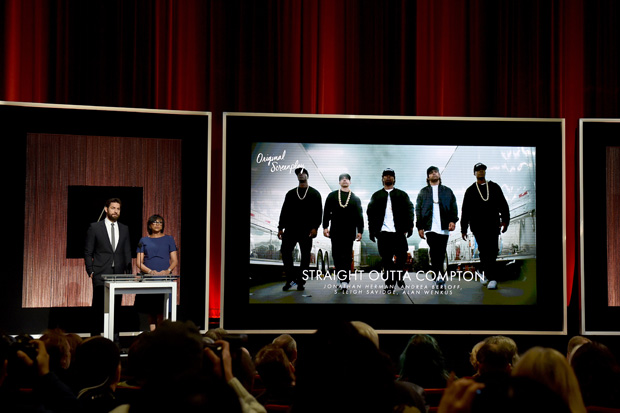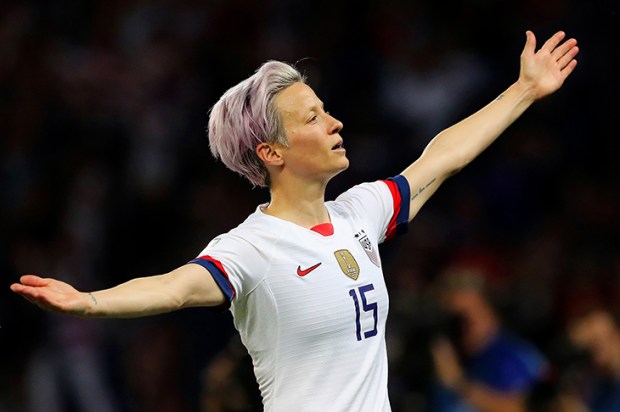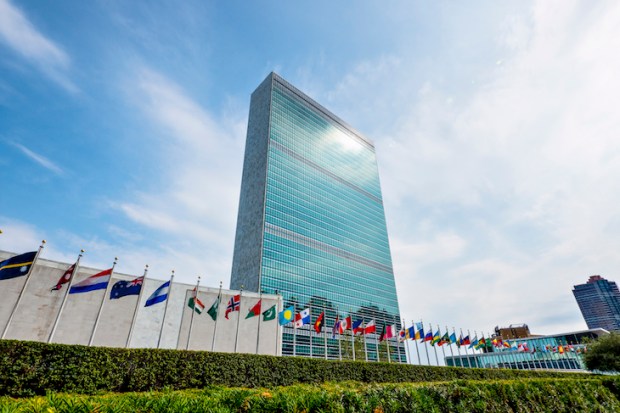Listen
In 2017 it will be exactly 50 years since a dapper Sidney Poitier announced to Rod Steiger, in the excellent film In The Heat of the Night: ‘They call me Mr Tibbs!’ Rod Steiger, playing a somewhat right-of-centre sheriff of a small town in Mississippi had hitherto been disposed to refer to Poitier — a senior policeman on his way home to Philadelphia — as ‘boy’, if you recall. I say the film was excellent, but the plotting was flawed, convoluted and unconvincing. The pleasure was to be gained instead from decent dialogue, a very good soundtrack and, most of all, the terrific performances of its two central stars.
At the time it was regarded as a sort of breakthrough — how wonderful to see Holly-wood confronting those hot issues of segregation and racism in the Deep South, as it never had done before! Other voices were more sceptical, thinking the southern states an easy and convenient target when there was plenty of racism, and consequent riots, in the supposedly civilised states north of the Mason-Dixon Line. One such sceptic was the magnificent Mr Steiger himself: ‘A very nice film and a very good film, and yes, I think it’s good to see a black man and a white man working together… but it’s not going to take the tension out of New York City. It’s not going to stop the riots in Chicago,’ he remarked.
Indeed, the Oscars committee the following year seemed wholly unmoved by the underlying message of the film. They lavished praise and awards upon it, for sure — there was a wholly deserved Academy Award for Steiger, as well as one each for the producer, the film editor, the screenplay writer and the bloke who did the sound. And nominations, but no award, for the director, Norman Jewison and the sound editor. Sidney Poitier did not even receive a nomination. Nor was the black musician Quincy Jones nominated for his brilliant soundtrack. Best soundtrack that year went to the god-awful Thoroughly Modern Millie. Quincy’s quickly tossed-off redneck country parody, ‘Foul Owl on the Prowl’ alone was better than anything in Millie.
But it seems that not much has changed in 50 years, as far as the Academy Awards are concerned. In the first 50 years of the Academy Awards, beginning in 1929, only two black American actors won Oscars — including Poitier for Lilies of the Field. Since then things have picked up, but only a little. There have been Academy Awards for a total of 11 black American actors in the last 37 years and only about 40 nominations. And in the last two years not a single black face has even been nominated.
You might begin to see, then, why black Americans are a little disdainful of the Academy Awards, or even angry. The director Spike Lee has announced that he will be boycotting the awards (yep, he missed out this year, as you might have guessed) and so too has the actress Jada Pinkett Smith (Will Smith’s missus). And of course the Reverend Al Sharpton has got in on the act, as you might imagine he would. He described the Academy Awards as being like the Rocky Mountains — always white at the top. It grieves me to say it, but perhaps for the first time, this perpetually thuggish Harlem agitator might have a decent point.
Lee, and others, have demanded that those who make the nominations be drawn from a slightly more diverse demographic: they are 94 per cent white and 86 per cent aged over 50. This brings us into troubled and swirling waters: for what reason would black Americans choose more black actors for nominations, other than a racial bias on their own part? In fact, the African American Film Critics Association has already named its best film of 2015: the almost entirely black-casted Straight Outta Compton. Really, bro? It reminds me of that scene from In The Heat of the Night when a seething Poitier tells Steiger he wants to ‘bring down’ the racist white cotton farmer, bring him down at all costs, regardless of the evidence. ‘Why, you just the same as us,’ Steiger’s white sheriff replies with glee, as if the thought had never previously occurred.
From the political right there has been the usual caustic and spiteful rhetoric. Take this, from the blog ‘American Thinker’: ‘But Academy Awards aside, I also have to wonder if Spike Lee will boycott the Nobel Prize. After all, there has been exactly one black Nobel laureate in economics and exactly zero in sciences. If that isn’t racism, what is? And perhaps he will want to boycott the Democratic party, which has only one black senator and exactly zero black governors.’
And there is at least half a point to that nasty riposte. Acting is one of the few top professions where African-Americans actually do punch their weight, even if the rewards are not always forthcoming. That they do not do so in other top professions is perhaps partly a consequence of plain and simple discrimination, but partly also a culture which does not value academic achievement as much as it should. This may account for the almost total absence of African-Americans from the Academy Awards for work carried out behind the camera — the sound technicians, the editors, the directors (except for ol’ Spike, natch), the cameramen. That’s a societal problem, not a Holly-wood problem.
Still, at least black Americans can console themselves that they are not alone in being shunned by the Academy Awards. Almost all of the top actors are likewise ignored, regardless of their race. The Oscars usually go to third-rate actors from huge-budget third-rate films. Those cretins who do the nominating are swayed by the glutinously sentimental, the overblown epic, the vacuously feelgood, the imbecilic right-on political values stapled to the banal glossy dross. There’s a case for saying African-Americans are best off out of it.
Got something to add? Join the discussion and comment below.
Get 10 issues for just $10
Subscribe to The Spectator Australia today for the next 10 magazine issues, plus full online access, for just $10.
You might disagree with half of it, but you’ll enjoy reading all of it. Try your first month for free, then just $2 a week for the remainder of your first year.















Comments
Don't miss out
Join the conversation with other Spectator Australia readers. Subscribe to leave a comment.
SUBSCRIBEAlready a subscriber? Log in